Apple Intelligence, bespoke AI looks brilliant but does not convince everyone
“The start of a new era thanks to the best artificial intelligence system yet”. “Apple’s desperate move to get you to change your iPhone”. These are two of the very mixed impressions that followed the presentation of Apple Intelligence, a proprietary, multi-layered system that the Cupertino company uses to bring GenAI features to iPhone, iPad and Mac. The Worldwide Developers Conference (WWDC) highlight was significant because it revealed Apple’s strategy on the hottest front of the moment and was probably decisive for the future of the technology sector.
The news is frozen, however, as it will only be available in six months and initially only in English. Other languages won’t be available until well into 2025, and given the pace of innovation in AI, who knows how far OpenAI, Google and others will have progressed by then? Before we even understand how Apple’s system works, the necessary premise concerns privacy. The protection of users’ personal data is a point that Cupertino has insisted on for years in order to emphasise its different approach to developing products, software and services. In this sense, Apple’s advantage remains its ability to optimise the combination of hardware and software better than any of its rivals because it does everything itself, while its competitors in the Android world have to come to terms with Google. Tim Cook’s strength remains the protection of information, even on the AI side.
You will have to buy a new iPhone
So is everything all right? Not really, because many insiders have been surprised by the limitations of Apple Intelligence. Not in terms of performance, but in terms of processing power, which is why, according to the company, AI will only be available on the iPhone 15 Pro and Pro Max, while nothing will be available on all previous models.
Owners of the iPhone 14 Pro Max, for example, may be annoyed that only models with an A17 chip will be able to take advantage of Apple Intelligence (the concept also applies to iPads and Macs, where the difference will be the M1 chips and later versions), unlike Samsung, which has added AI functionality to models prior to the Galaxy S24 series with an update. The result of this choice is that Apple will probably sell more iPhone 16s. Not bad news, considering that from January to March 2024, Apple recorded a 10% drop in sales of its phone compared to the same period last year. This drop weighed on total revenue for the quarter, which was only down 4% in the previous twelve months thanks to growth in service revenue.
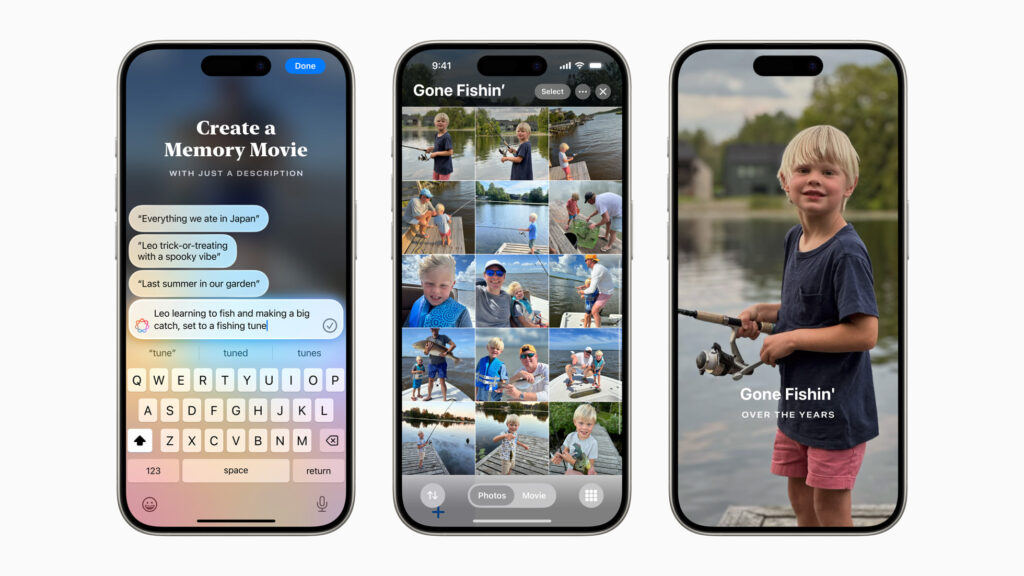
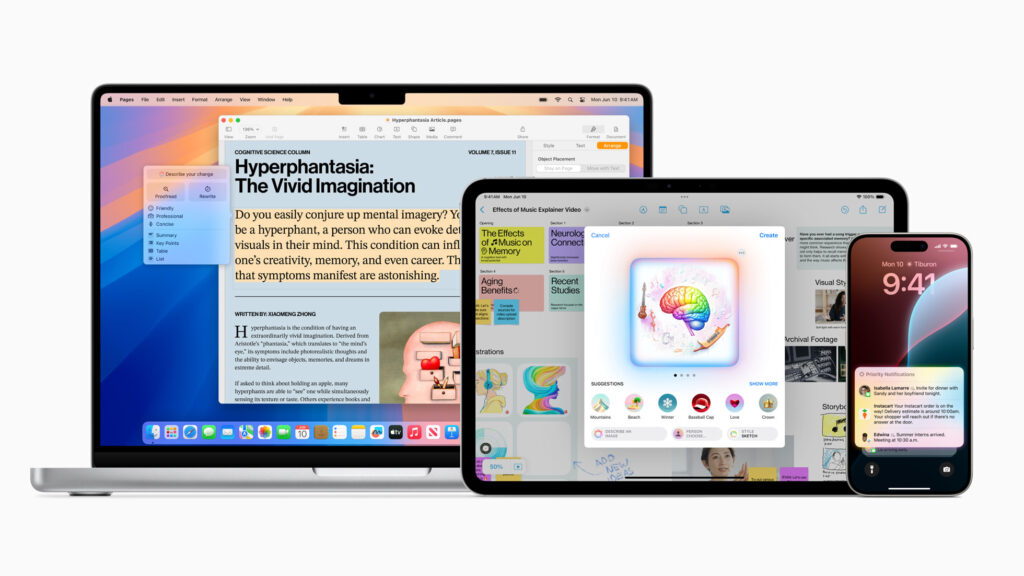
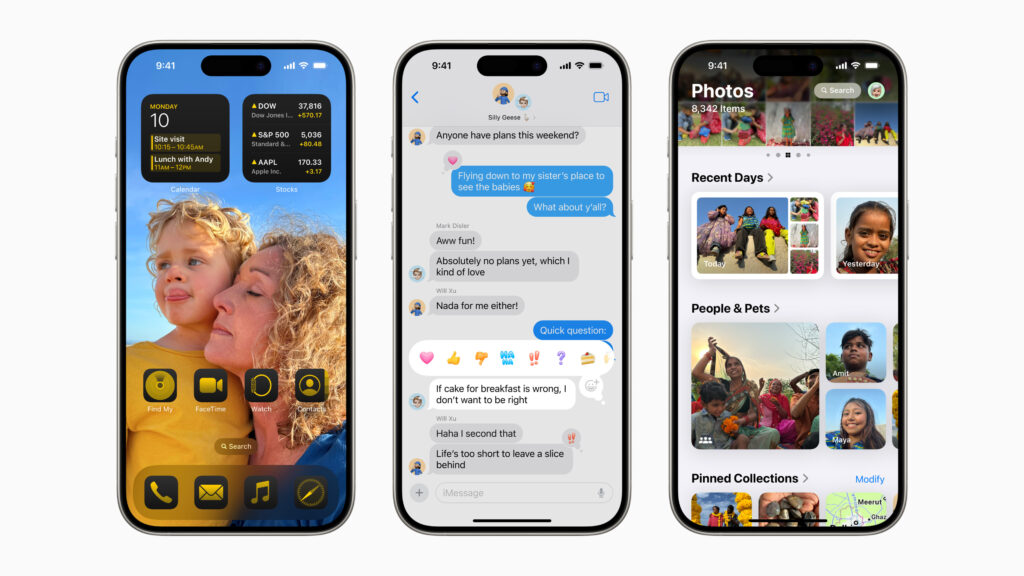

AI via cloud but with privacy
Let’s get down to the nitty-gritty of how Craig Federighi, Apple’s software guy, led the development of the AI system. The basic idea was to create an artificial intelligence that was familiar to the user and the context in which they were moving so that it could satisfy their requests. The aim was not to create an encyclopaedia of history and general culture but an assistant capable of providing concrete help.
That is why Apple has chosen to process requests on board, directly on the device. This is an option for the simplest queries, while for the more complex ones, which require more computing power than the individual devices, Apple turns to external servers and the cloud. Stepping outside Apple’s secure perimeter means potentially putting personal data at risk, a scenario avoided by Private Cloud Compute, a system created in Cupertino to combine power and privacy to meet users’ needs while keeping processed information safe, as data passing through external servers remains there for the time needed for processing, without being archived.
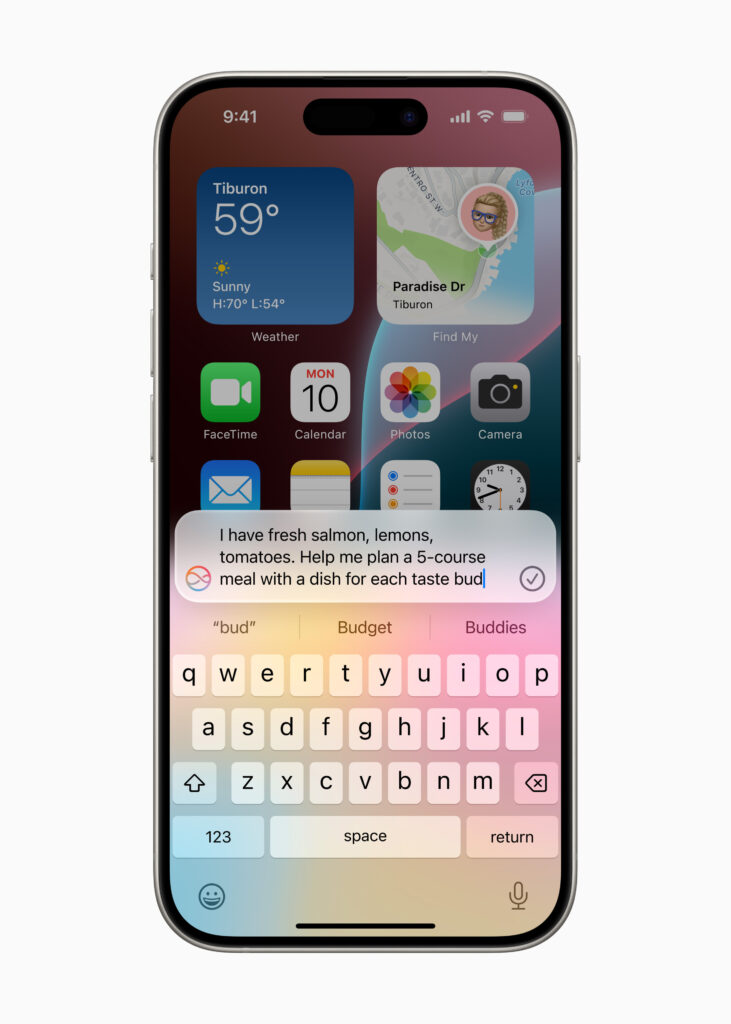
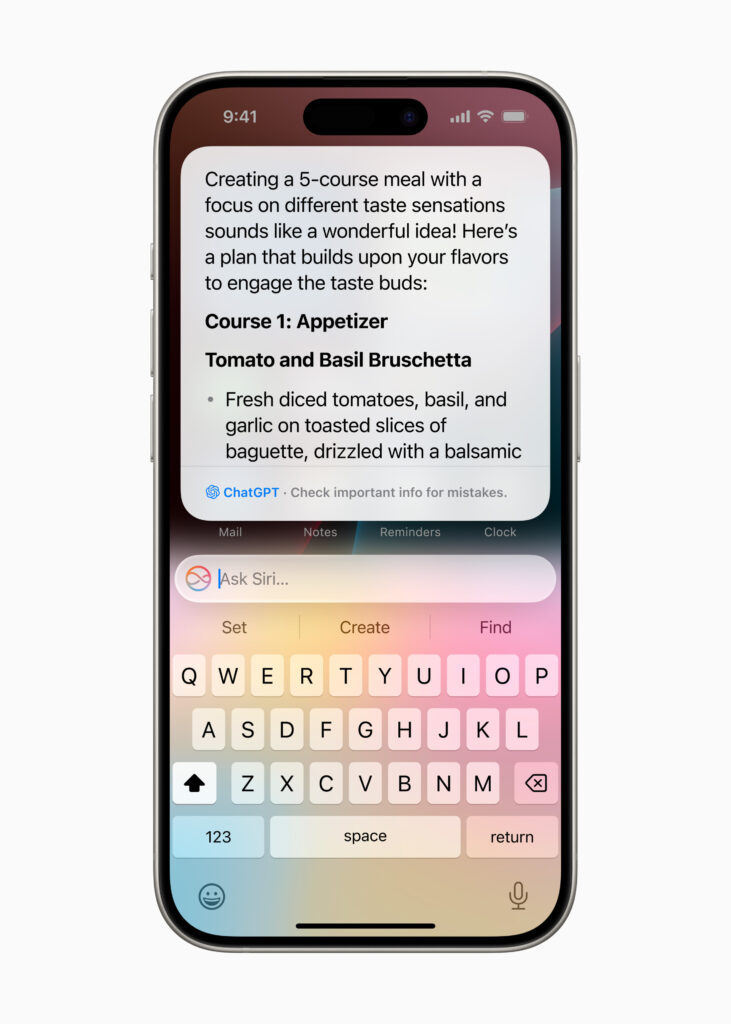
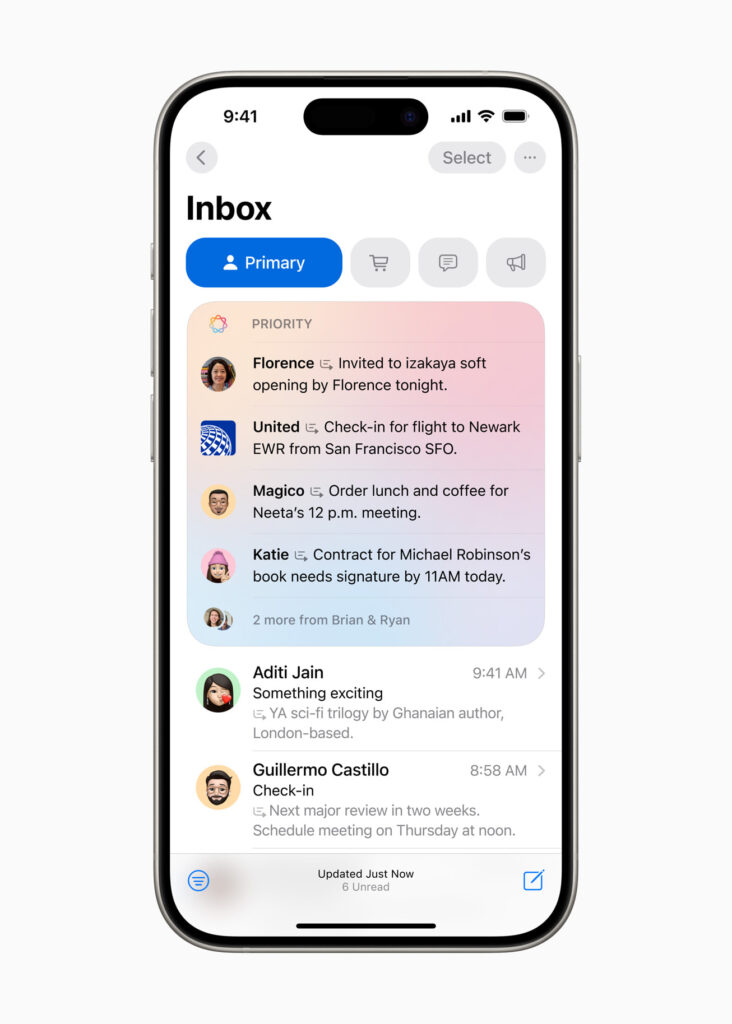
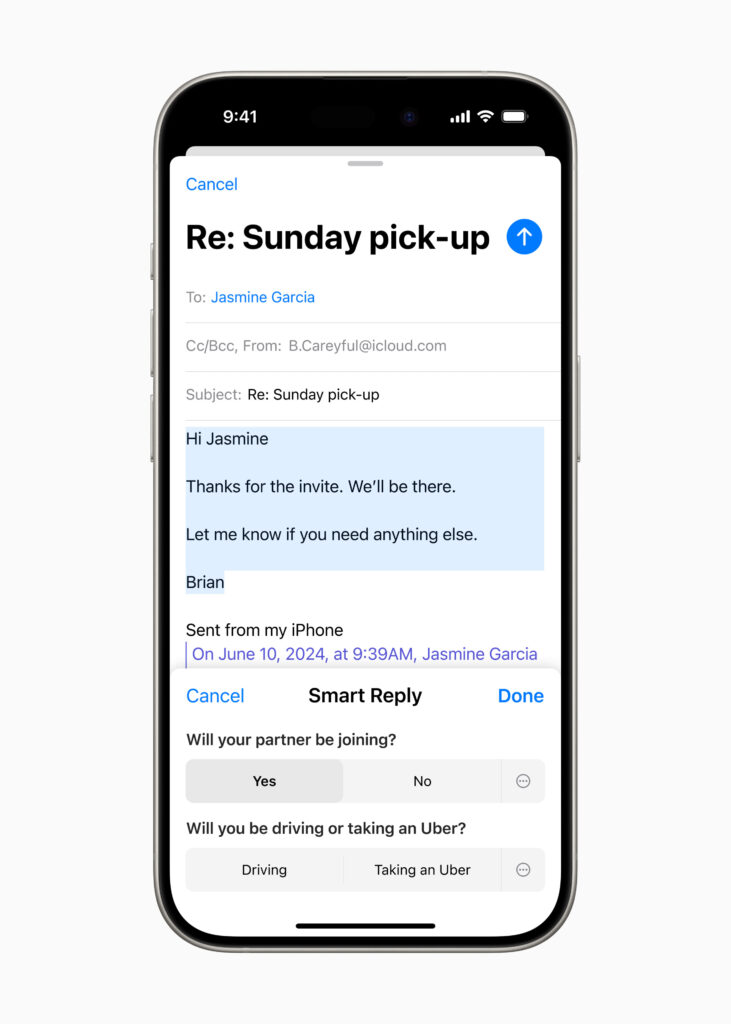
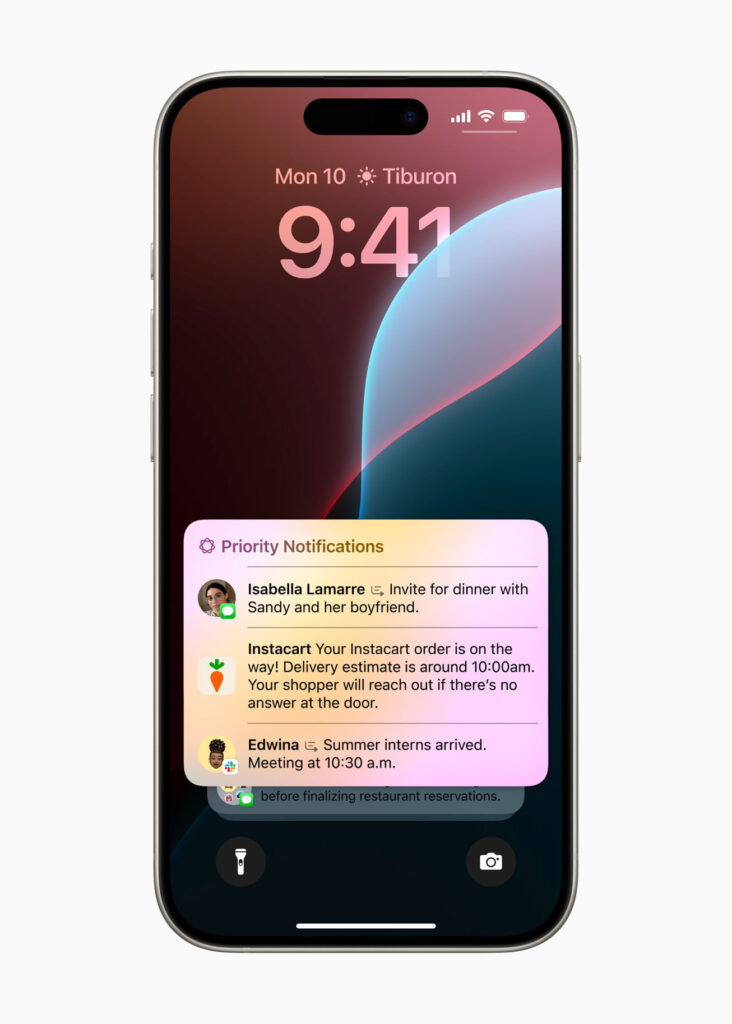
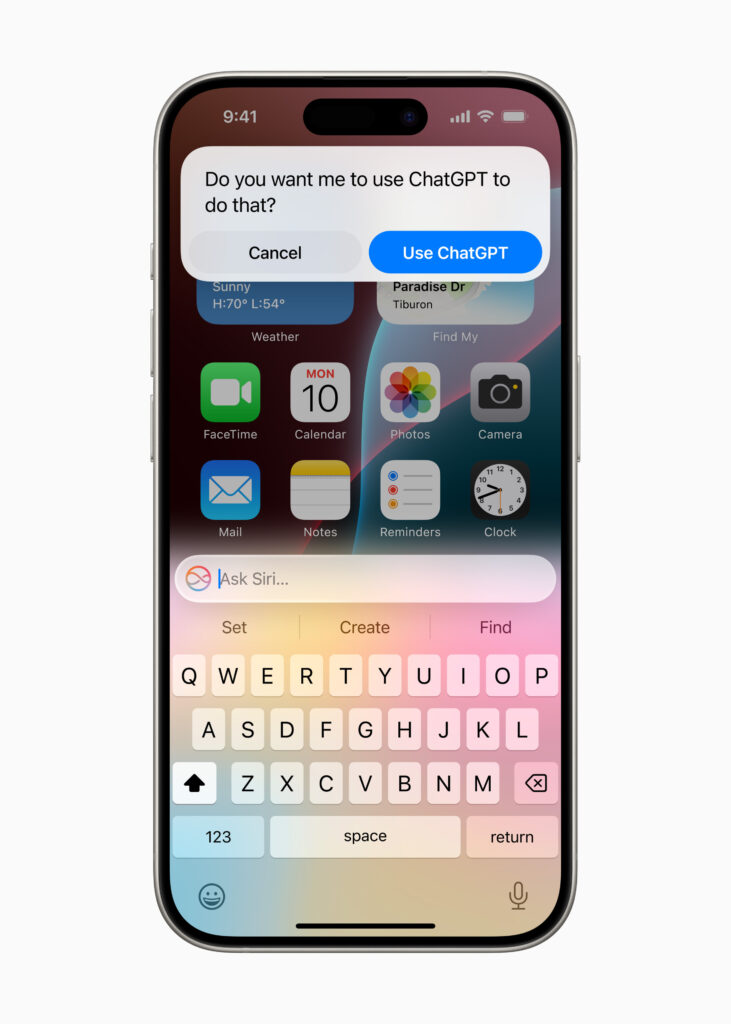
ChatGpt on Apple devices
The other new feature of Apple Intelligence will be the integration of ChatGpt in iOS 18. Apple has signed an agreement with OpenAI, the financial details of which were not disclosed, to answer general questions asked by users. A third assistant, therefore, will intervene to carry out certain tasks and not others since it should be remembered that the OpenAI chatbot is trained with billions of data but cannot understand the context of a person’s life. According to the system prepared by Apple, ChatGpt is the first, but it will not be the only Gen AI software on board the devices, as more will come later, including Gemini and Google’s high-performance AI.
Aware of how late it arrived compared to others, Apple is the first to insist on security and privacy. Not least because, in terms of functionality, the devices will be able to do what we have already seen on Google and Samsung’s flagship smartphones: write emails, generate images using the Image Playground app, and summarise meetings and lectures. A system that lives up to its promises will be able to complete complex tasks quickly and efficiently. Oddly enough, Apple Intelligence will be triggered by Siri, the voice assistant launched in 2011 that has failed to live up to the revolutionary promises accompanying its debut. Now that it has access to all the user’s information on the device, it will be up to Siri to find the best way to please its boss. Hopefully, it will prove to be more prepared than in the past.



